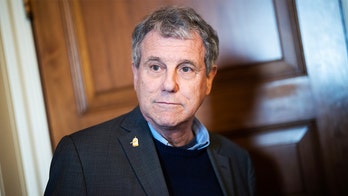A bailout plan for the struggling U.S. automakers may be in place, but the political warfare over the plan isn't over.
Vice President Dick Cheney, for his part, turned on the Democratic Congress for failing to rescue the ailing auto industry earlier.
"They had ample opportunity to deal with this issue and failed," Cheney said in an exclusive interview with FOX News Sunday host Chris Wallace. "The President had no choice but to step in."
That didn't sit well with two Michigan Democrats who tried to maneuver a loan package through Congress. Sen. Carl Levin, D-MI, and Rep. Sander Levin, D-MI, are brothers and spoke to reporters via a teleconference.
"For the vice president to say Congress did not act...it was a minority of people from the vice president's party who prevented this (from happening)," Sander Levin said, referring to a minority of Republican senators who stymied an auto rescue effort.
The House approved a loan plan but a similar effort died in the Senate after lawmakers couldn't reach a compromise to overcome a Republican-led filibuster.
"It wasn't the Congress," Levin added.
His brother Carl applauded the vice president for meeting with Senate Republicans to persuade skeptical lawmakers to abandon the filibuster.
"His pleas fell on deaf ears," Carl Levin said of Cheney's efforts.
Still, the Levin brothers indicated that the Bush administration squandered crucial time by not acting sooner. House Speaker Nancy Pelosi (D-CA) and other leading Democrats argued the White House should have approved the loan money weeks ago by dipping into part of the $700 billion financial rescue fund Congress approved in October.
Sander Levin said he thought it was a mistake by the Bush Administration to initially resist utilizing the Troubled Assets Relief Program money (TARP) for the auto industry and punting first to Congress.
"That was regrettable," Levin said."It would have been better earlier."
Sander Levin believes had the White House acted weeks ago, Chevrolet wouldn't have been forced to temporarily suspend plans to construct a plant in Flint, MI, to mass-produce a plug-in hybrid known as the Volt.
In addition, Levin said the loan money could have staved off a decision by Chrysler to shutter nearly 60 plants for a month rather than the customary two weeks at the holidays.
Congressional reaction to the White House loan package, however, was muted and mostly virtual.
If Congress were in session, a parade of lawmakers would have streamed in and out of the House and Senate Radio-TV Galleries to either applaud or decry President Bush's move.
Instead, lawmakers responded online.
Sen. George Voinovich, R-OH, who represents a large auto industry constituency in his home state, was first out of the gate with an e-mailed statement, saying he was "grateful" for the president's action "to help thwart a disaster that would have sent our state over the cliff."
But there was a note of resignation from Voinovich.
Like the Levin brothers, Voinovich said he was sad he "couldn't convince Congress to get this done back before Thanksgiving."
And in their e-mailed statement, the Levin brothers were careful to shield the Big Three automakers from criticism that their business practices led them to the brink of failure.
"The current crisis facing our domestic auto industry was brought on by factors beyond its control," they said.
But many Republicans delivered a blistering attack on the administration's approach on autos.
Senate Minority Whip Jon Kyl, R-AZ, said he was "very disappointed" and asked "where will it stop?"
And Sen. Judd Gregg, R-NH, the top Republican on the Senate Budget Committee and a key TARP negotiator, declared Mr. Bush's use of the money was "inconsistent with the purposes of TARP. These funds were not authorized by Congress for non-financial companies in distress."
Sen. Jim Inhofe, R-OK, deployed a stronger tone.
"I am outraged," said Inhofe in a statement and accused the administration of "changing course."
Inhofe intends to lead a charge to block Bush administration officials from tapping the remaining $350 billion in the TARP fund. He's also calling on Americans to contact lawmakers to urge them to sign his bill that would freeze the money in the fund and return it to taxpayers.
"Over the next few weeks I will be reaching out to my colleagues to ask them to sign on to my bill so we can stop this nonsense as soon as possible," he said.
Meantime, others on Capitol Hill saw President Bush's decision as an opening to appeal for relief for many of those who don't drive cars and instead take the bus or subway.
Reps. Jim Moran, D-VA, and Chris Van Hollen, D-MD, wrote Bush a letter that implored him to direct some of the money he approved to 31 struggling mass transit agencies, including the one that operates the Washington, DC-area Metro system.
FOX News' Trish Turner contributed to this report.




